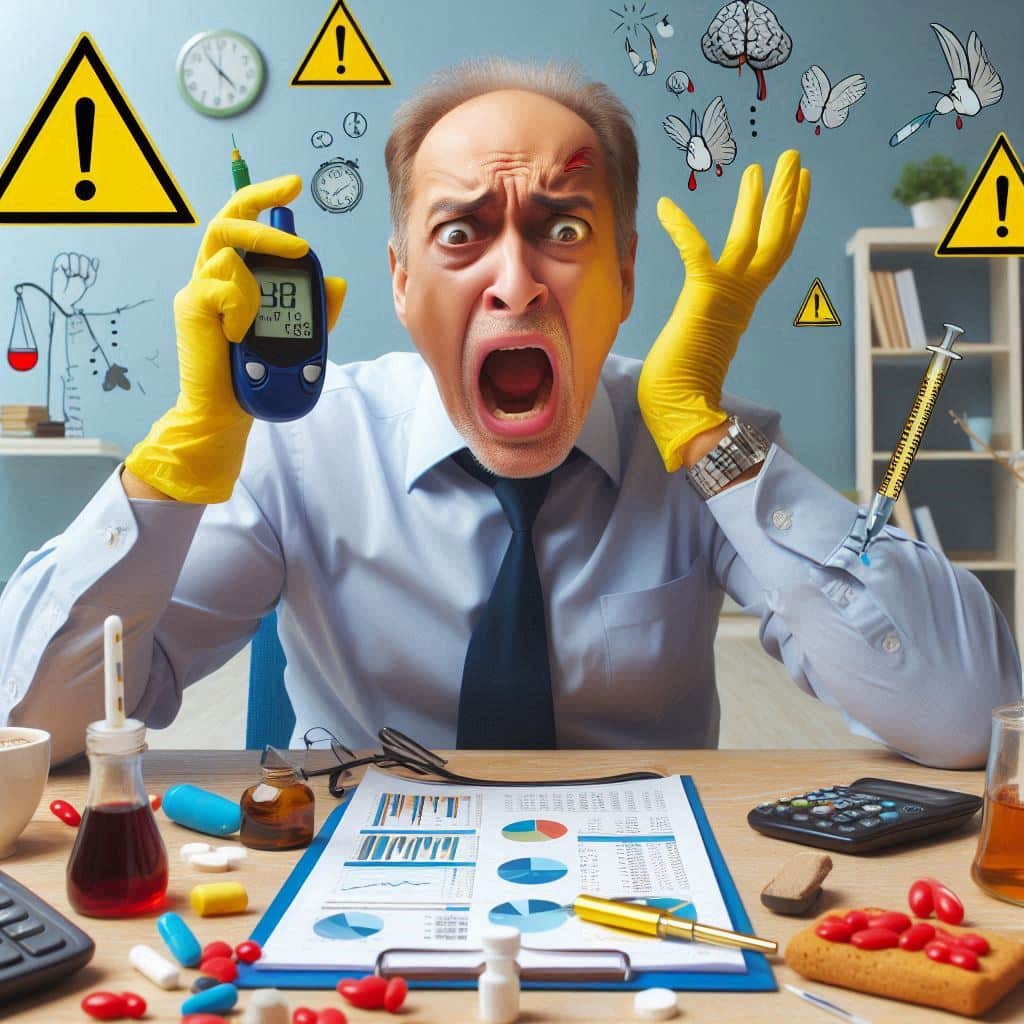8 Early Warning Signs Your Blood Sugar Is Super High
Here are eight early warning signs that your blood sugar might be too high. Recognizing these symptoms can help you address high blood sugar levels before they become serious:
1. Frequent Urination
- When blood sugar levels are high, the kidneys work overtime to filter excess glucose from the blood, leading to increased urination. This can happen both during the day and at night.
2. Excessive Thirst
- High blood sugar leads to dehydration, making you feel thirsty all the time. Drinking a lot of water may temporarily help but won’t fully resolve the issue until blood sugar levels stabilize.
3. Increased Hunger
- Despite eating regular meals, high blood sugar can make you feel hungry. This occurs because the body isn’t able to use glucose efficiently for energy, causing the cells to signal that they need more fuel.
4. Fatigue or Weakness
- When glucose isn’t properly absorbed by cells, it leads to a lack of energy. High blood sugar disrupts energy levels, making you feel tired and weak even after a full night’s sleep or rest.
5. Blurred Vision
- High blood sugar levels can affect the lenses in your eyes, causing them to swell and leading to blurred vision. This is often one of the earliest signs of blood sugar issues and typically improves once blood sugar is managed.
6. Slow Healing of Cuts and Wounds
- Elevated blood sugar can impact circulation and the body’s ability to repair itself, resulting in slow healing of cuts, bruises, and infections. This can also increase the risk of skin infections.
7. Numbness or Tingling in Hands and Feet
- High blood sugar levels can damage nerves, especially in extremities. This nerve damage, known as neuropathy, often begins with a tingling sensation and can progress to numbness if blood sugar remains uncontrolled.
8. Unexplained Weight Loss
- When the body can’t use glucose for energy, it begins to break down muscle and fat for fuel, leading to unexpected weight loss. This is especially noticeable if you’re eating normally but still losing weight.
What to Do If You Notice These Signs
If you’re experiencing any of these symptoms regularly, it’s wise to check your blood sugar levels and consult with a healthcare provider. They can recommend lifestyle changes, dietary adjustments, or medication if necessary to help manage blood sugar effectively.


